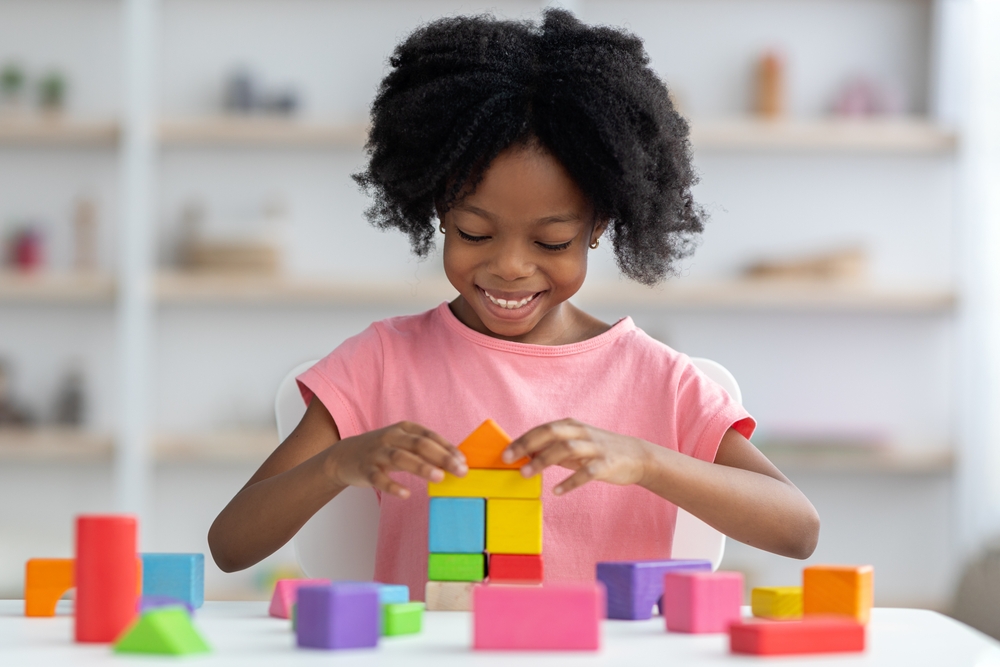Creative Learning Through Play: Unleashing Potential in Early Childhood

In the formative years of a child’s life, early experiences shape their future cognitive, social, and emotional development. One of the most effective and engaging methods to foster this growth is through play-based learning. This approach not only enriches a child’s educational experience but also lays a solid foundation for their lifelong learning journey. In this blog, we will explore how creative learning through play can significantly impact early childhood development, with a specific focus on the benefits of play-based learning and how Greenwood preschool education exemplifies these principles.
What is Play-Based Learning?
Play-based learning is an educational approach that incorporates play as a central component of the learning process. Unlike traditional educational methods that may rely heavily on direct instruction and rote memorization, play-based learning encourages children to explore, discover, and learn through their natural curiosity and imagination. This method is grounded in the belief that children learn best when they are actively engaged and having fun.
The Foundation of Play-Based Learning
Play-based learning is built upon the idea that play is a crucial part of childhood development. It supports various aspects of growth, including cognitive, physical, social, and emotional skills. When children engage in play, they are not just having fun; they are developing problem-solving abilities, language skills, and social competencies.
Play-based learning can take many forms, such as:
- Imaginative Play: Children use their imagination to create scenarios and roles, which helps in developing creativity and understanding different perspectives.
- Exploratory Play: Through activities like building with blocks or experimenting with water, children explore concepts of physics and problem-solving.
- Constructive Play: Children create or build something with materials, which enhances their fine motor skills and spatial awareness.
Benefits of Play-Based Learning
The benefits of play-based learning are extensive and multifaceted. This approach not only makes learning enjoyable but also enhances various aspects of child development.
Cognitive Development
Play-based learning stimulates cognitive development by encouraging children to think critically and solve problems. Through activities that require planning, experimentation, and reflection, children develop essential cognitive skills. For example, when building a structure with blocks, children learn about balance, symmetry, and spatial relationships.
Social Skills
Play provides a natural setting for children to interact with their peers, learn about cooperation, and practice communication. Activities like role-playing or team games teach children how to work together, negotiate, and resolve conflicts. These social skills are fundamental for forming positive relationships and functioning effectively in group settings.
Emotional Development
Engaging in play helps children express and manage their emotions. Through various scenarios, children can explore different feelings and learn how to handle them in a constructive manner. Play also offers opportunities for children to build self-confidence and resilience as they face challenges and achieve goals.
Physical Development
Play-based learning promotes physical development through activities that involve movement, coordination, and fine motor skills. Whether it’s running, climbing, or manipulating small objects, children enhance their physical abilities and overall health. Physical play is also crucial for developing gross and fine motor skills, which are essential for everyday tasks and future academic success.
Greenwood Preschool Education: A Case Study in Play-Based Learning
Greenwood preschool education is a prime example of how play-based learning can be effectively implemented in early childhood settings. This approach aligns with the principles of play-based learning and demonstrates its impact on young learners.
Curriculum Design
At Greenwood preschool, the curriculum is designed to incorporate a variety of play-based activities that align with developmental milestones. The program includes structured play sessions, free play opportunities, and guided activities that stimulate different areas of learning. The curriculum is flexible and adapts to the interests and needs of the children, allowing for a personalized learning experience.
Learning Environment
The learning environment at Greenwood is carefully crafted to support play-based learning. Classrooms are equipped with a range of materials and resources that encourage exploration and creativity. Spaces are organized to facilitate different types of play, such as dramatic play areas, building stations, and sensory tables. This environment supports the diverse learning styles of children and fosters a love for learning.
Teacher Facilitation
Teachers at Greenwood play a crucial role in facilitating play-based learning. They observe children during play, provide guidance when needed, and create opportunities for meaningful learning experiences. By engaging with children in their play, teachers can assess their developmental progress and tailor their support to meet individual needs.
Parent Involvement
Greenwood values the role of parents in the learning process and encourages their involvement in play-based activities. Parents are invited to participate in classroom events, share their skills and interests, and support their child’s learning at home. This partnership between educators and parents enhances the effectiveness of play-based learning and reinforces the importance of a supportive learning community.
Implementing Play-Based Learning at Home
Parents can also support play-based learning at home by incorporating similar principles into everyday activities. Here are some practical tips for parents to foster creative learning through play:
Create a Playful Environment
Designate areas in your home for different types of play, such as a reading nook, a building zone, or an art corner. Provide a variety of materials and toys that encourage exploration and creativity. Rotate toys and materials regularly to keep the environment fresh and engaging.
Encourage Imaginative Play
Support your child’s imagination by providing props and costumes for role-playing. Join in their play scenarios and expand on their ideas to stimulate further creativity. Encourage storytelling and dramatic play to enhance language skills and emotional expression.
Incorporate Learning into Everyday Activities
Turn everyday tasks into learning opportunities by involving your child in activities such as cooking, gardening, or shopping. Use these moments to teach concepts like measurement, counting, and problem-solving in a fun and interactive way.
Promote Social Interaction
Arrange playdates with peers and encourage group activities that involve sharing, cooperation, and teamwork. Provide opportunities for your child to practice social skills and navigate social interactions in a supportive environment.
Conclusion
Creative learning through play is a powerful approach to early childhood education that supports various aspects of development. The benefits of play-based learning are evident in cognitive, social, emotional, and physical growth. Greenwood preschool education exemplifies the effectiveness of this approach by providing a well-rounded, engaging, and supportive learning environment.
By understanding and implementing the principles of play-based learning, both educators and parents can contribute to unlocking the full potential of young learners. Embracing play as a fundamental component of education not only makes learning enjoyable but also lays the groundwork for future success and lifelong curiosity.
Incorporating play-based learning into early childhood education ensures that children develop the skills and confidence they need to thrive. Whether in a preschool setting like Greenwood or at home, fostering a playful and enriching learning environment can make a significant difference in a child’s educational journey.
Need a Child Educational Center in Greenwood, IN?
Established in 2017, we here at Kids Kingdom Early Learning Center are a child care and learning center located in Greenwood, Indiana. We specialize in providing a variety of services including daily nondenominational Christian education, before care and aftercare services, Paths to QUALITY™ Level 3 provider, On My Way Pre-K Provider, director-led weekly Bible learning time, military discounts, available through NACCRRA, Kindergarten readiness, CCDF provider, and more for children from newborn to 6 years old. As a family-owned and operated business, we value providing Christian education and quality services. Contact us for more information or come visit us today!

